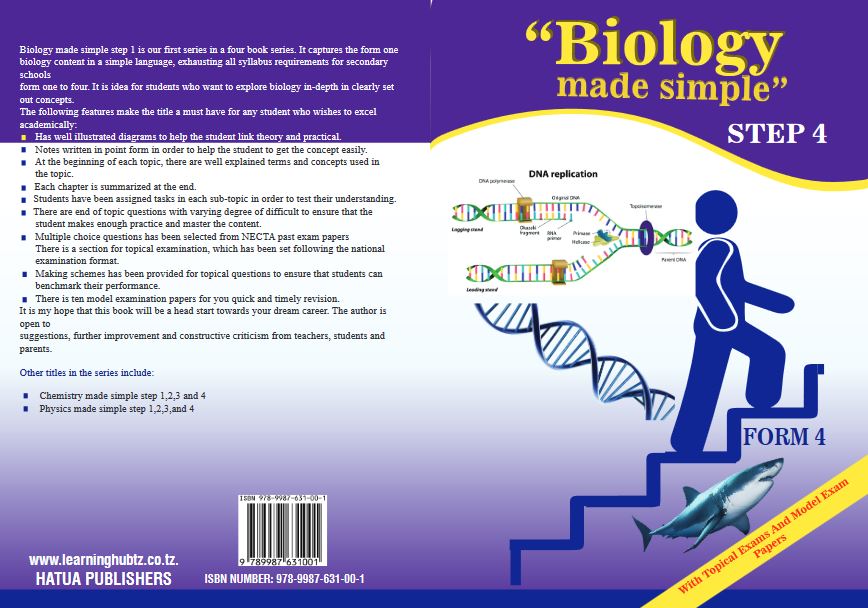CHAPTER 01 : LOVING OUR SOCIETY
A society is made up of people who live together in a given area. Good people form a good society. In this chapter, you will learn how to live with other members of your society. You will also study good habits of the members of the society. The habits include self-love, self-awareness and love for others.
Loving yourself and loving others Loving yourself
l . What actions does a person who love him or herself do?
2. What do people who do not love themselves do?
3. What are the benefits of loving oneself?
4. What are the disadvantages of not loving oneself?
Loving yourself means being proud of yourself and accepting who you are. A child who loves him or herself takes good care of his or her health. He or she avoids doing bad things and behaves well.
| Look at the following pictures and then answer the questions that follow. |
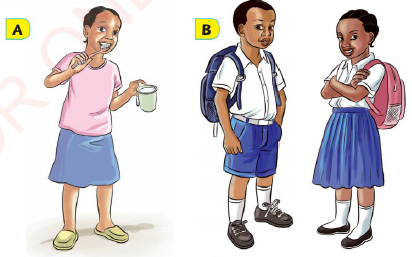 |
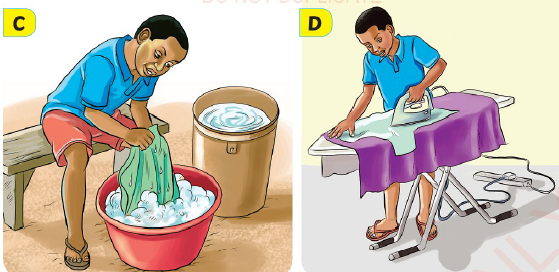 |
| Figure 1 Acts of loving yourself |
Questions
l . What activities do you see in Pictures A, B, C and D?
2. What other acts of loving oneself do you know?
3. What are the acts of a person who does not love him or herself?
Activity 1
List the actions in the following areas that show that you love yourself.
(a) at home
(b)at school
(c) to the neighbours around you
Exercise 1
l . Mention actions which show that you love yourself.
2. What are the advantages of washing our clothes and cleaning our bodies?
3. Read the description of the following actions. What do you learn from them?
(a) The pupil brushes his or her teeth and takes a bath every day.
(b) Yuma's friends are helping elders.
(c) The pupil is wearing clean clothes.
Loving others
What do you do to show other people that you live well with others? Acts that show you love others include greeting them and listening to them. Others are helping people and guiding them well. People like to communicate with pupils who love others.
What steps would you take in the following situations?
(a) A fellow pupil falls down and hurts his or her foot.
(b) Your younger brother is crying.
(c) A blind person is standing by the road side, waiting to cross the road.
(d) Your fellow pupil does not have a pen, but you have two pens.
(e) A teacher enters your classroom.
(f) You wake up in the morning and meet your parents.
A pupil who loves others wishes them well. He or she also, helps them when they have problems. Similarly, she or he thanks them for their support and apologises when she or he offends them.
| Questions l . What other acts show that you love others? 2. What actions show that you love others (a) at home? (b) at school? (c) in your neighbourhood? 3. What actions done by your friends show that they love others (a) at school? (b)at home? |
Read the following passage and then answer the questions that follow.
Nuru and Elifuraha are friends. They are both in Standard Three at Tupendane Primary School. They often visit each other. One day, Nuru went to Elifuraha's home. She saw Elifuraha's mother sleeping on the veranda. On that day, Elifuraha was not at home. Nuru greeted Elifuraha's mother. She told her that she was very sick. Nuru felt sad. Then, she went to ask for help from neighbours. Two neighbours arrived at the house and took the sick woman to hospital so that she could be treated. Later, she was allowed to go home. When Elifuraha returned home, she thanked her friend, Nuru. Nuru had shown love to Elifuraha's mother.
Questions
l . What do we learn from the above story?
2. What acts of showing love to others can you identify in the story?
3. What other acts of showing love to others do you know?
Activity 2
Write the steps that could be taken to help a fellow pupil who hurt his or her leg when playing football or netball at school.
Knowing yourself
Knowing yourself is being aware of your ability to do things. There are things you can do well and those you cannot. The natural ability to do good things is called talent.
Look at the following pictures and then answer the questions that follow.
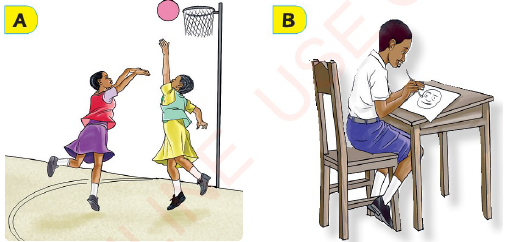 |
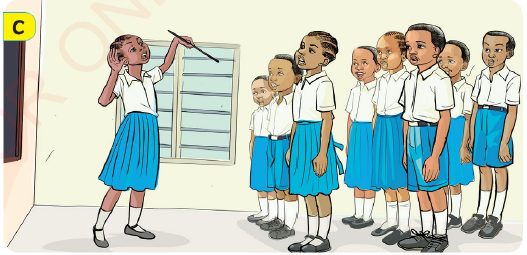 |
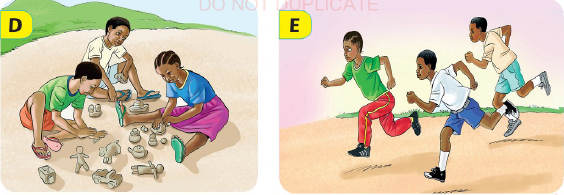 |
| Figure 2 Actions showing different talents |
| Questions 1. What actions do you see in Pictures A, B, C, D and E? 2. Which action do you like best? 3. Can you perform the actions shown in Figure 2? 4. Which action can your friends do more effectively? 5. What talents do you have? 6. Which of the following actions require talent? Circle your answer. (a) Singing, dancing, crying, sleeping and becoming sad (b)Drawing, sitting, weaving, running and clapping hands (c) Screaming, painting, acting and playing football |
Read the following passage and then answer the questions that follow.
Miss Dina teaches Civic and Moral Education at Misufini Primary School. One day, she asked Standard Three pupils to talk about their talents. Each pupil was given an opportunity to share with others about his or her talent. Ashura and Juma said they could draw pictures very well. Sara and Musa said that they could sing very well. Grace and Zuberi said that they could play football well. This made Miss Dina realise that her pupils had talents. She decided to develop the pupils' talents. She also advised them to work hard on their talents in order to develop them.
Questions
l . Which talents are mentioned in the story?
2. What is your talent?
3. What do you do to develop your talent?
Exercise 2
l. List five things you like to do.
2. Mention five actions you want your friends to do for you.
3. What actions can you perform well?
4. What should you do to perform better the actions in Figure 2?
Activity 3
Mention the names of the famous people that you know and their talents.
www.learninghubtz.co.tz
Hub App
 For Call,Sms&WhatsApp: 255769929722 / 255754805256
For Call,Sms&WhatsApp: 255769929722 / 255754805256
 For Call,Sms&WhatsApp: 255769929722 / 255754805256
For Call,Sms&WhatsApp: 255769929722 / 255754805256
WHATSAPP US NOW FOR ANY QUERY
App Ya Learning Hub Tanzania


